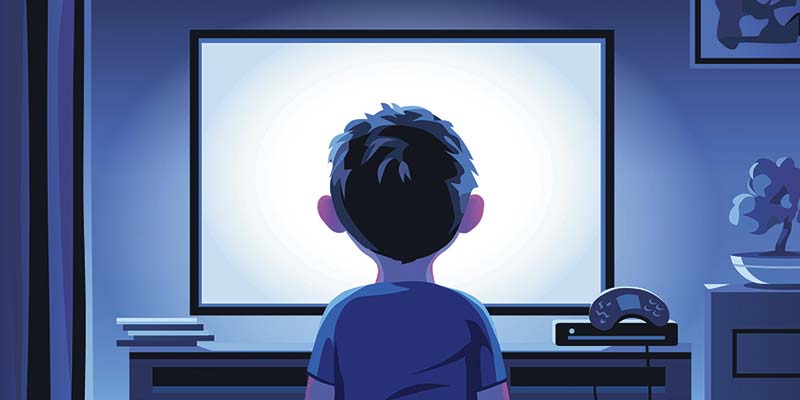The World Health Organization (WHO) officially included in the last review of the International Statistical Classification of Diseases and Related Health Problems (ICD-11) a video game disorder as a mental disorder. This game playing disorder, be it online or offline, is defined as a persistent and recurrent pattern of behaviour which takes precedence over all other interests. There is a lack of behaviour control, resulting in negative consequences on various levels, family, social, education and work.
Video games are often associated with alterations in the brain, emotions and behaviour, including violent behaviour. However, there is no scientific evidence between these correlations.
What do we, in fact, know about the bad effects of playing video games?
We know that video games can trigger strong emotions, such as joy or anger, facilitating aggressive behaviour, but that this experience is short-lived and has no impact on daily living. Investigation has proven that the emotions experienced by the players are directly related to the game, and even the aggressive behaviour passes quickly, resulting in no repercussion in the quality of life.
People who spend long periods of time playing video games are more easily defined as anxious or depressed. However, it is not easily perceptible whether video games are the reason for these characteristics or if people already possessing these characteristics occupy major segments of their life playing video games.
Video games today can create very powerful immersion experiences, activating brain reward centres that regulate motivation and adaptive behaviour. Occasionally, the rewards provided by these virtual realities can outweigh “real life” rewards, resulting in an addictive behaviour.
Let’s now mention the positive aspects of video games.
Improvement in visual attention; visual processing experienced by title award players has been scientifically verified; psychomotor improvement; faster decision-making; improved orientation capabilities; increased perseverance (overcoming adversities); and in specific cases of team playing (where several players form a team, sharing a goal), improvement in the quality of social relationships and a greater sense of wellbeing.
Considering that the advantages and disadvantages of video games have not yet been studied, what should one do? Should we play or not? Should we let our children play?
I think the answer to whether or not we should play or let our children play is “Yes”. However, on two conditions: firstly, moderation is needed with regard to the time spent playing (control of the time spent in front of screens); secondly, we must create a society that accepts young people, that provides them with an education of personal worth, that integrates them occupationally and knows how to take advantage of their creativity.
“Screen time” moderation (TV, video games, tablets, mobile phones) is of paramount importance for children, but also for adults. The WHO considers that a child under the age of two should not spend any time at all in front of a screen and for a child between the ages of two and four, a maximum of one hour a day in front of screens is advised. At primary school age, advice varies between one and two hours at most and for teenagers a maximum of three hours.
Time limitation does not solely rest on the harm that “screens” or games can cause but also because of time lost when one could be enjoying other experiences: physical or social activities. When a child is in front of a screen, it is physically inactive, not exploring the environment or interacting with others.
Playing moderately is also knowing which type of game to choose. Children should only play games which are appropriate to their age. Parents should pay close attention and respect the age limit printed on the package and make sure that they know which games their children play and the themes.
Moderate play implies that the game does not interfere with sleeping times; with mealtimes; with school attendance or work; or with socialisation.
Playing is part of human nature. It is a benign and healthy behaviour, as long as it is moderate and does not interfere with other normal activities.
By Dr Filipe Fernandes
|| features@algarveresident.com
Dr Filipe Fernandes is a psychologist and neuropsychologist at Hospital Particular – Alvor and Gambelas, and Clínica Particular – AlgarveShopping, Guia



















